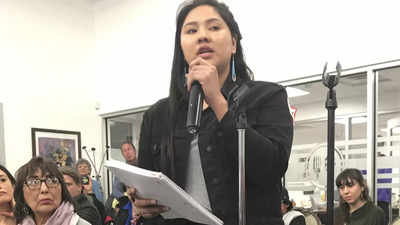In a groundbreaking decision, the New Mexico Supreme Court ruled on Thursday that public schools and universities in the state can be sued for discriminatory conduct. This ruling, seen as a victory for student rights, allows individuals to challenge discrimination based on race, ethnicity, or cultural identity in public education institutions. The decision has the potential to influence how schools across the country handle such cases, with many legal experts viewing it as a landmark moment in the fight for equality in education.
Case Origin and the Legal Precedent
The case stems from a 2018 incident in Albuquerque, where a teacher at Cibola High School allegedly discriminated against Native American students. One student had her hair cut by the teacher, while another was questioned about her Halloween costume, with the teacher reportedly asking if she was dressed as a “bloody Indian.” This incident sparked outrage, leading to a lawsuit by the American Civil Liberties Union (ACLU) of New Mexico against the Albuquerque Public Schools district and the teacher.
Previously, schools were largely protected under legal precedents that shielded them from such lawsuits. However, as reported by the Associated Press, the state’s high court ruled that public schools are indeed “places of public accommodation,” allowing them to be held accountable for discriminatory actions under New Mexico’s Human Rights Act.
Impact on Public Education and Potential National Ripple Effect
The ruling clarifies that students in New Mexico now have legal recourse if they face discrimination within public schools or universities, potentially setting a precedent for other states to follow. “No student should endure discrimination or disrespect in the classroom,” said McKenzie Johnson, one of the students involved in the case, as quoted by the Associated Press. Johnson added that the decision should serve as a “wake-up call for educators to prioritize cultural sensitivity and create inclusive environments.”
While this ruling is limited to New Mexico, experts believe it could have broader implications for public education nationwide. Schools in other states could face increased pressure to address discriminatory behaviors more aggressively, and similar lawsuits may emerge elsewhere, potentially reshaping how educational institutions handle racial and cultural sensitivity.


